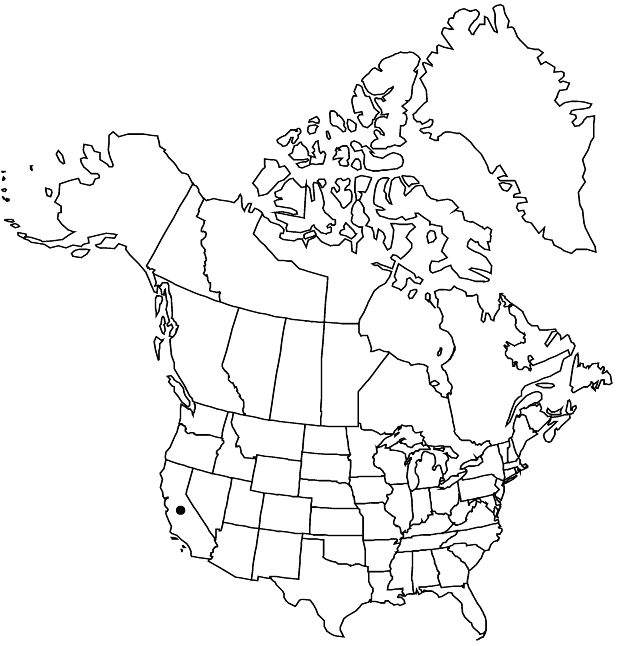familyEricaceae
subfamilyEricaceae subfam. Arbutoideae
genusArctostaphylos
speciesArctostaphylos bakeri
subspeciesArctostaphylos bakeri subsp. sublaevis
Difference between revisions of "Arctostaphylos bakeri subsp. sublaevis"
Four Seasons 8(2): 63. 1988 ,.
Common names: The Cedars manzanita
Treatment appears in FNA Volume 8. Treatment on page 439.
FNA>Volume Importer |
FNA>Volume Importer |
(No difference)
| |
Revision as of 23:05, 16 December 2019
Twigs eglandular-hairy, sessile glands beneath. Petioles 4–8 mm, eglandular-hairy, sessile glands beneath. Inflorescences: immature inflorescence axis 1.5–2 cm, rachis eglandular-hairy, sessile glands beneath; branches slender; bracts eglandular-hairy, sessile glands beneath.
Phenology: Flowering winter–early spring.
Habitat: Closed-cone conifer chaparral on serpentine soil
Elevation: 300-600 m
Discussion
Of conservation concern.
Subspecies sublaevis occurs in the southern outer North Coast Range between Cazadero and Healdsberg, Sonoma County.
Selected References
None.
Lower Taxa
None.
